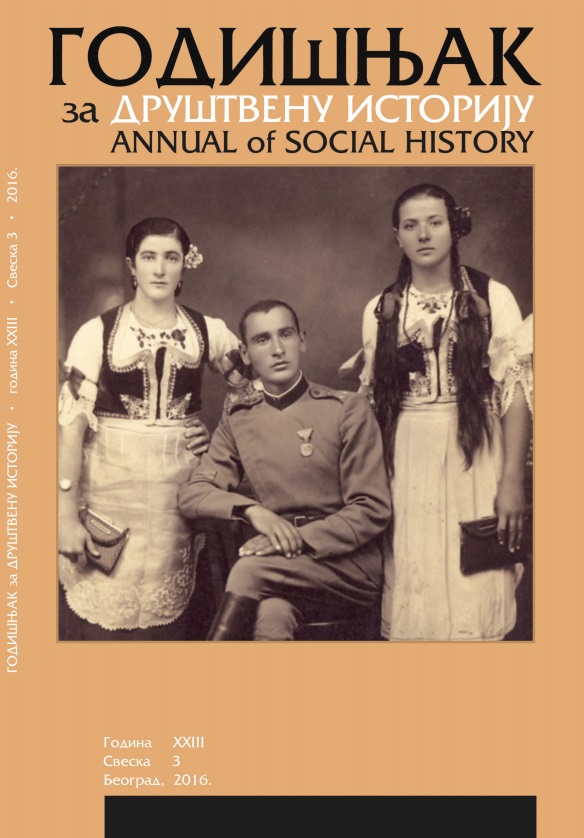Илегални путеви југословенског опијума змеђу два светска рата
Illegal Routes of Yugoslav Opium between the Two World Wars
Author(s): Vladan Z. JovanovićSubject(s): Criminology, Substance abuse and addiction, Interwar Period (1920 - 1939)
Published by: Udruženje za društvenu istoriju
Keywords: opium; Kingdom of Yugoslavia; illegal trade; Alkaloid Factory of the Brothers Ognjanović
Summary/Abstract: In the early 1920s there was a global expansion of illegal opium networks which centers begun to move from Western Europe to the southeast. After the Opium Advisory Commission of the League of Nations marked Paris, Istanbul and Sofia indestructible hubs of illegal opium processing, even Belgrade became the main subject on several sessions of the Geneva Commission in the late-1930s. As a leading manufacturer of high-quality medical opium Yugoslavia had semi-regulated market until 1931, dominated by Salonika companies since the Ottoman times. The exporting cooperation with Turkey (1932-1940) appeared detrimental to Yugoslav partner because it was forced to export its highly appreciated Macedonian opium to American pharmaceuticals, receiving only a quarter of total earnings. The situation got out of control by the mid-1930s when Yugoslav factories in Skopje and Hrastnik started to process large amounts of raw opium intended for export. According to the Geneva reports, both factories were caught in smuggling morphine and heroin to Austria and Germany, compromising legal producers of opium derivatives. Moreover, the Ognjanović brothers from Skopje used to transport their heroin to Mexico and the United States, which provoked the American ambassador in Paris to threaten the Yugoslav authorities with the embargo if they do not stop the illegal production. The main means of illegal drug transport were trains and river boats, backed by the corrupt border administration. Despite the fact that several international gangs were successfully detected in Yugoslav capital, the Belgrade police could not destroy the whole network composed of local criminals, Russian immigrants, and some diplomatic representatives. Under the threats of both the American diplomacy and the European pharmaceutical cartel, unable to cope with the illegal fabrication and smuggling at the same time, the Kingdom of Yugoslavia adopted a draconian opium decree in 1938 by which the production of raw opium was deflated, „solving the problem“ temporarily.
Journal: Godišnjak za društvenu istoriju
- Issue Year: 2016
- Issue No: 3
- Page Range: 65-88
- Page Count: 24
- Language: Serbian

